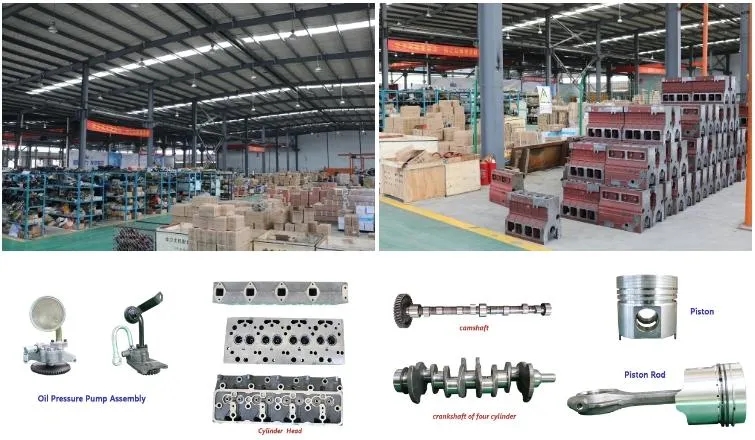Introduction
Diesel generators play a crucial role in providing backup power in various settings, including industrial facilities, hospitals, data centers, and residential buildings. These generators are relied upon during power outages to ensure continuity of operations and maintain essential services. To ensure the reliable operation of diesel generators, proper maintenance practices and adherence to industry standards are essential. In this article, we will discuss the importance of maintaining diesel generators, common maintenance tasks, and the standards that govern their upkeep.
Importance of Maintaining Diesel Generators
Proper maintenance of diesel generators is critical to their performance, reliability, and longevity. Neglecting maintenance can lead to a range of issues, including reduced efficiency, increased fuel consumption, and even catastrophic failure during crucial moments. By implementing a proactive maintenance program, operators can minimize downtime, prevent costly repairs, and extend the lifespan of their diesel generators.
Regular maintenance also helps ensure that diesel generators are ready to perform when needed most. In emergency situations, such as power outages or natural disasters, having a well-maintained generator can make the difference between continued operations and significant disruptions. Therefore, investing time and resources in maintenance is a wise decision for any organization or individual that relies on diesel generators for backup power.
Common Maintenance Tasks for Diesel Generators
Maintaining a diesel generator involves a combination of routine inspections, preventive maintenance tasks, and periodic servicing. The following are some of the common maintenance tasks that should be performed on a regular basis to keep diesel generators in optimal condition:

1. Visual Inspections: Regular visual inspections of the generator and its components can help identify any signs of wear, damage, or leaks. Inspect the engine, fuel system, cooling system, exhaust system, and electrical connections for any issues that may require attention.
2. Fluid Checks and Changes: Diesel generators require various fluids, including engine oil, coolant, and fuel. Regularly check the fluid levels and condition, and follow the manufacturer's recommendations for changing fluids at specified intervals.
3. Filter Replacements: Filters, such as oil filters, fuel filters, and air filters, play a crucial role in maintaining the cleanliness of the engine and prolonging its life. Replace filters according to the manufacturer's guidelines or more frequently in dusty environments.
4. Battery Maintenance: Diesel generators rely on batteries to start the engine and provide power to essential components. Inspect the batteries regularly, clean the terminals, and ensure they are adequately charged to prevent starting issues.
5. Load Bank Testing: Periodic load bank testing is essential to verify the generator's ability to handle its rated load. This test helps identify any issues with the generator's performance under load and ensures it can meet the required power output.
6. Cooling System Maintenance: The cooling system of a diesel generator is critical for regulating engine temperature and preventing overheating. Check coolant levels, inspect hoses and connections for leaks, and clean the radiator to maintain proper cooling efficiency.
7. Fuel System Inspection: Diesel fuel can degrade over time and lead to injector clogging or engine performance issues. Regularly inspect the fuel system, including fuel lines, filters, and tanks, and consider using fuel additives to prevent fuel degradation.
8. Generator Control Panel Checks: The generator control panel is the brain of the system, monitoring various parameters and ensuring proper operation. Test the control panel regularly, check for error codes or alarms, and verify that automatic functions are working correctly.
Standards for Diesel Generator Maintenance
Several industry standards and guidelines provide recommendations for the maintenance of diesel generators to ensure safe and reliable operation. Adhering to these standards helps operators maintain compliance, reduce risks, and optimize the performance of their equipment. Some of the key standards related to diesel generator maintenance include:
1. NFPA 110: The National Fire Protection Association (NFPA) standard 110 outlines the requirements for emergency and standby power systems, including diesel generators. This standard covers installation, testing, maintenance, and operation of generators to ensure they are ready to provide backup power when needed.
2. ISO 8528: The International Organization for Standardization (ISO) standard 8528 provides guidelines for the design, performance, and testing of diesel generator sets. This standard specifies various parameters, such as power rating, fuel consumption, and emissions, to ensure the reliability and efficiency of diesel generators.
3. ANSI/IEEE C62.41: The American National Standards Institute (ANSI) and the Institute of Electrical and Electronics Engineers (IEEE) standard C62.41 addresses surge protective devices for low-voltage AC power circuits. Surge protection is essential for safeguarding electronic components in diesel generators from voltage spikes and transient disturbances.
4. ASHRAE Guideline 1.1: The American Society of Heating, Refrigerating and Air-Conditioning Engineers (ASHRAE) guideline 1.1 provides recommendations for the design, installation, and maintenance of emergency and standby power systems. Following these guidelines helps ensure the reliability and performance of diesel generators in critical applications.
5. Manufacturer's Recommendations: In addition to industry standards, it is crucial to follow the manufacturer's recommendations for maintenance and servicing of specific diesel generator models. Manufacturers provide detailed guidelines for routine maintenance tasks, service intervals, and troubleshooting procedures to keep generators operating at peak performance.
200kw diesel generator for sale
Maintaining diesel generators in accordance with industry standards and best practices is essential to ensure their reliability, performance, and longevity. By implementing a comprehensive maintenance program that includes regular inspections, fluid checks, filter replacements, and other tasks, operators can minimize downtime, prevent costly repairs, and extend the lifespan of their generators. Adhering to standards such as NFPA 110, ISO 8528, and ANSI/IEEE C62.41 helps ensure compliance, safety, and optimal operation of diesel generators in various settings. By prioritizing maintenance and following established guidelines, organizations and individuals can rely on their diesel generators to provide backup power when needed most.
